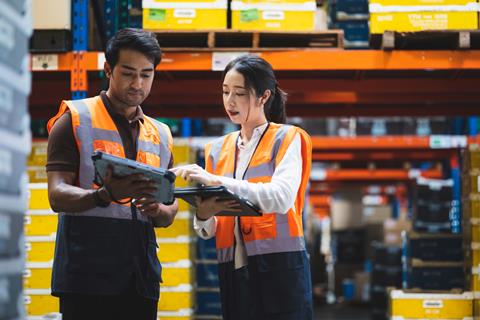The impact of AI on jobs is a regular topic of discussion across almost all industries, but a new study suggests most logistics workers are unconcerned about the threat to their careers.
A YouGov survey commissioned by the global tech firm SafetyCulture found two-thirds (66%) were not worried about their jobs being automated.
Instead, the ‘feedback from the field’ report painted a picture of a workforce largely content with the impact of integrating technology into the frontline.
Respondents included frontline employees and managers working across the distribution, logistics and supply chain industries and only a third said they had concerns about new tech such as AI.
However, there was a generational divide, with younger logistics workers more worried than older workers about the impact of automation on their role.
The survey found 57% of Gen Z workers expressed concerns, compared to just 10% of pension-contemplating Baby Boomers.
Automation could be introduced as a means to solve skills and labour shortages; 73% of logistics workers thought skills and labour shortages would present critical issues in the industry and of these, 35% believed these issues were already causing problems.
SafetyCulture said its report represented one of the largest studies into frontline experiences and perspectives and involved more than 10,000 workers worldwide, 2,000 of which were in the UK.

Alex Brooks-Sykes, SafetyCulture’s lead for UK & Ireland, said: “Technology is revolutionising the industry, from autonomous vehicles to transportation and warehouse management.
“But our report suggests investing in both people and technology is vital.
“The reality is frontline employees are dissatisfied with their current workplace tools and IT – with our research estimating that outdated and unfit tools cost the logistics industry more than £1.88bn every year.
“The frontline reaps the benefit of better technology and businesses can benefit from improved efficiency, better risk management, and enhanced training.”
This week, the customs and trade solutions provider Customs Support Group published research that showed skills shortages, complex customs regulations and AI were major market hurdles.













